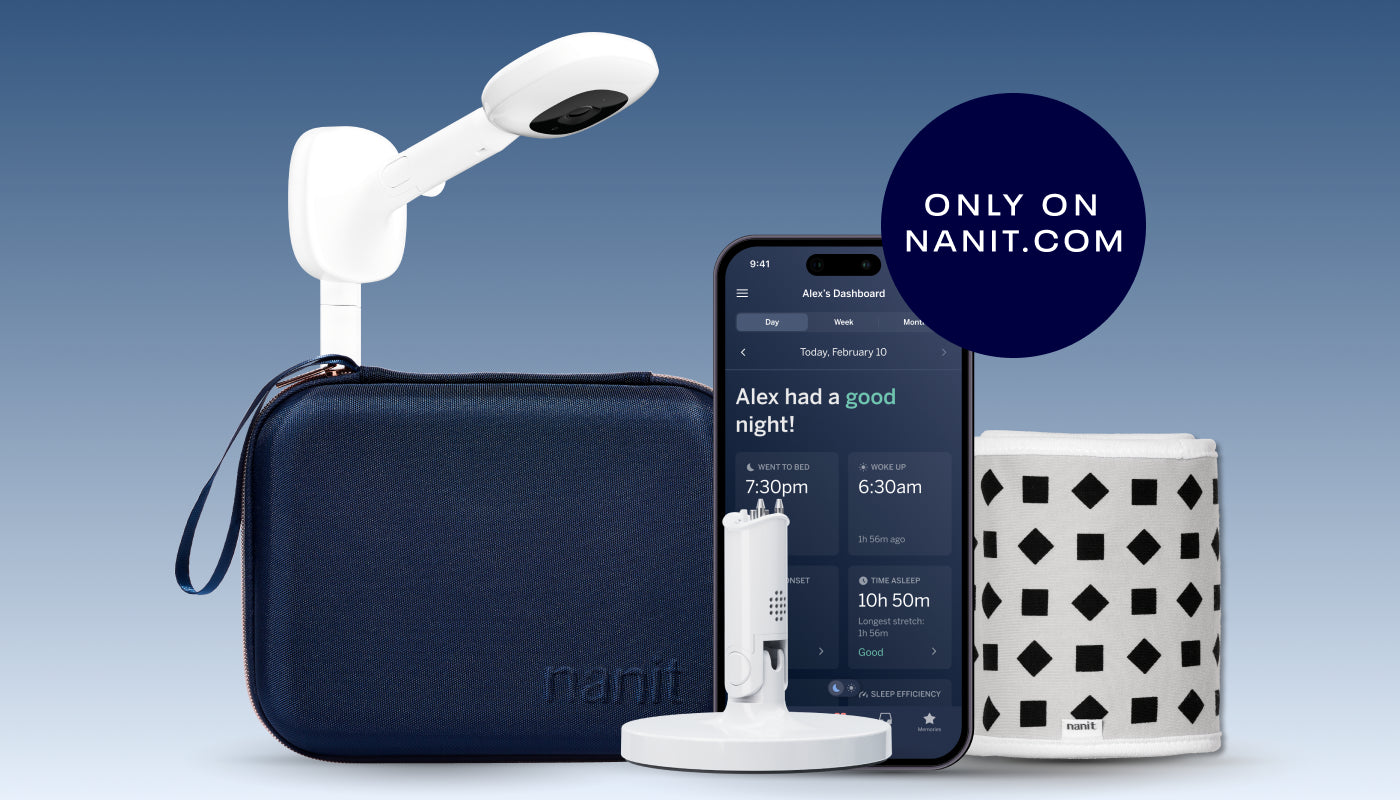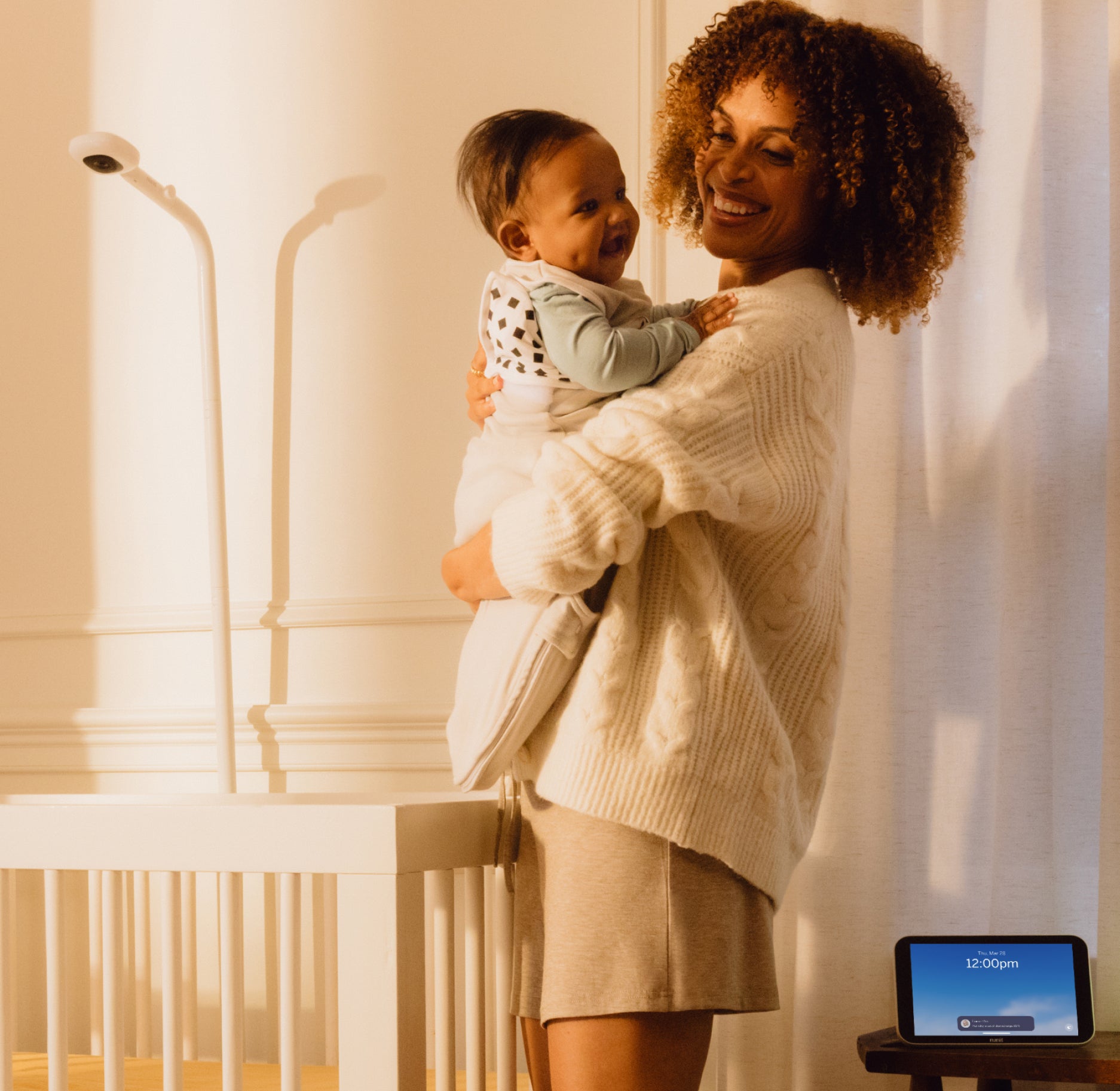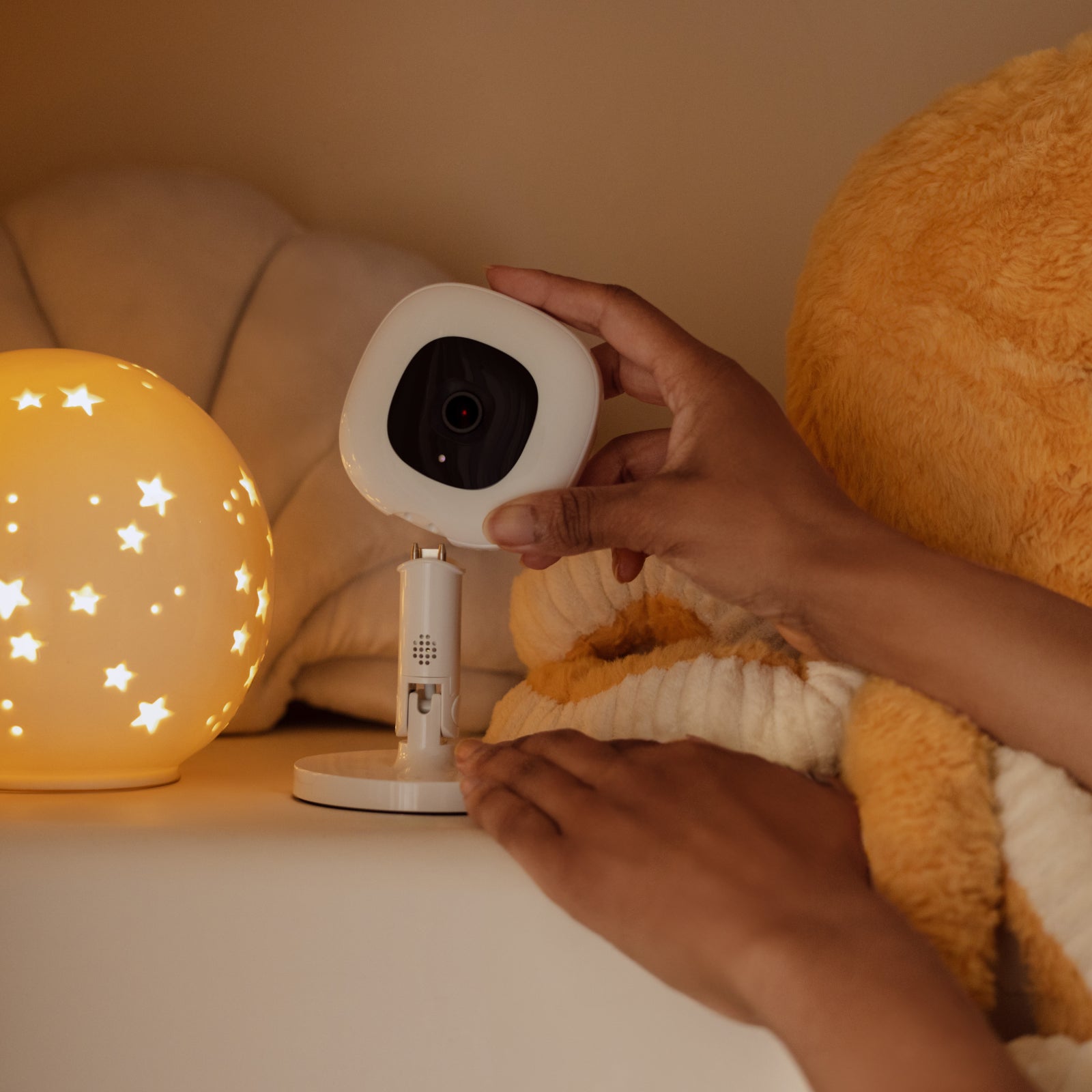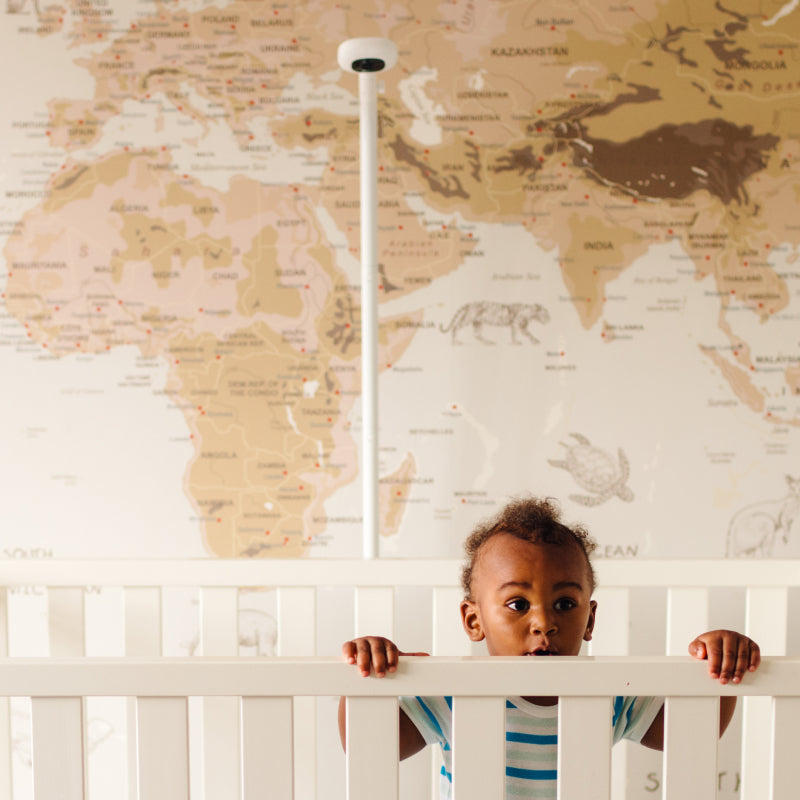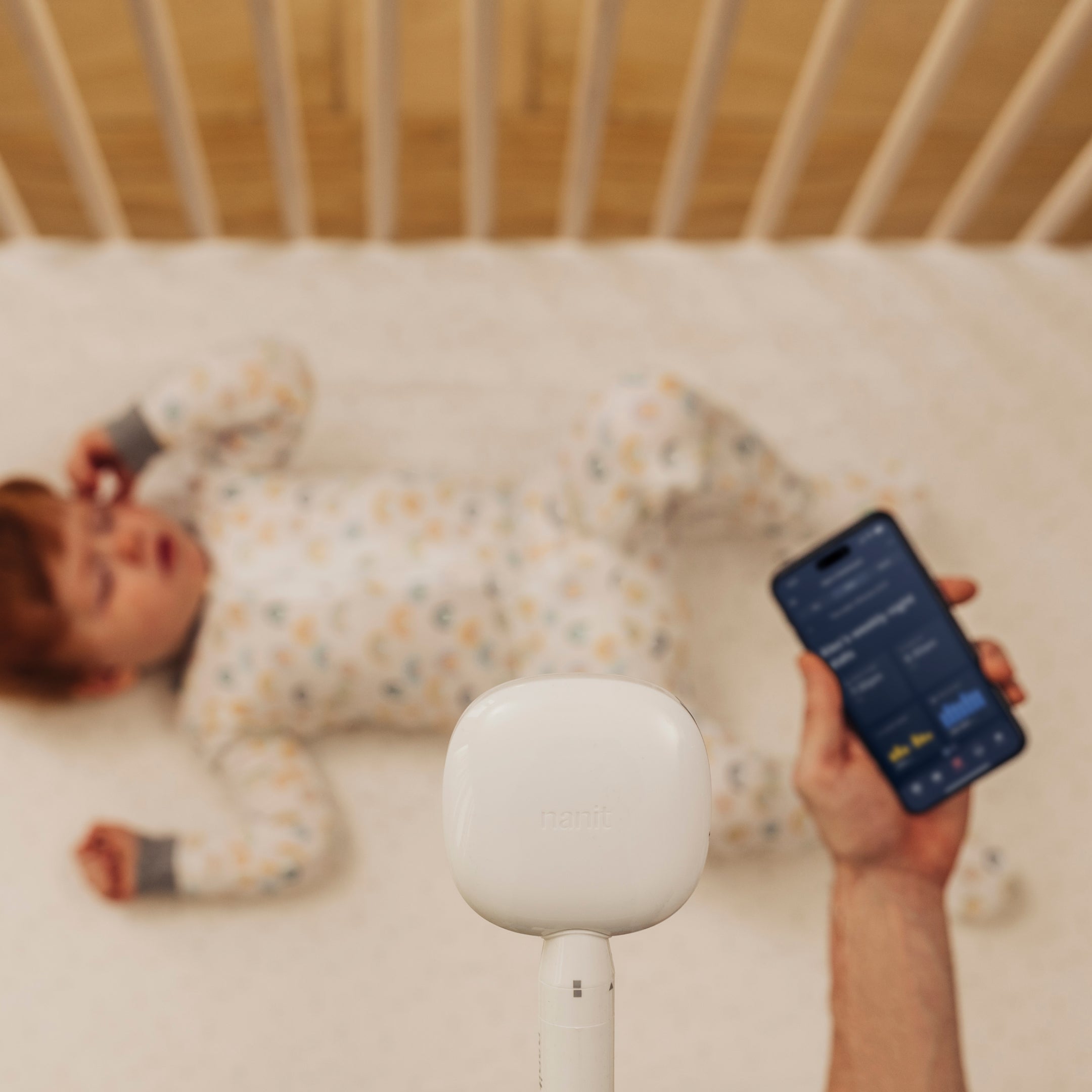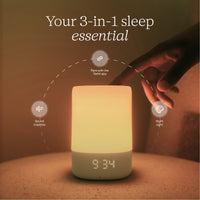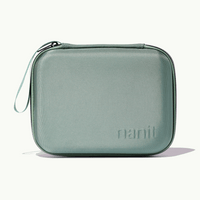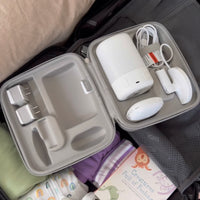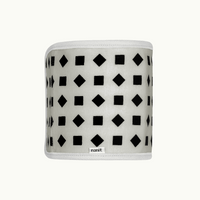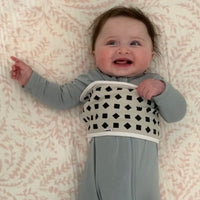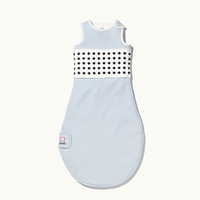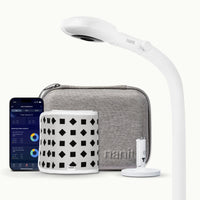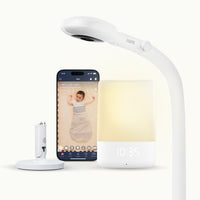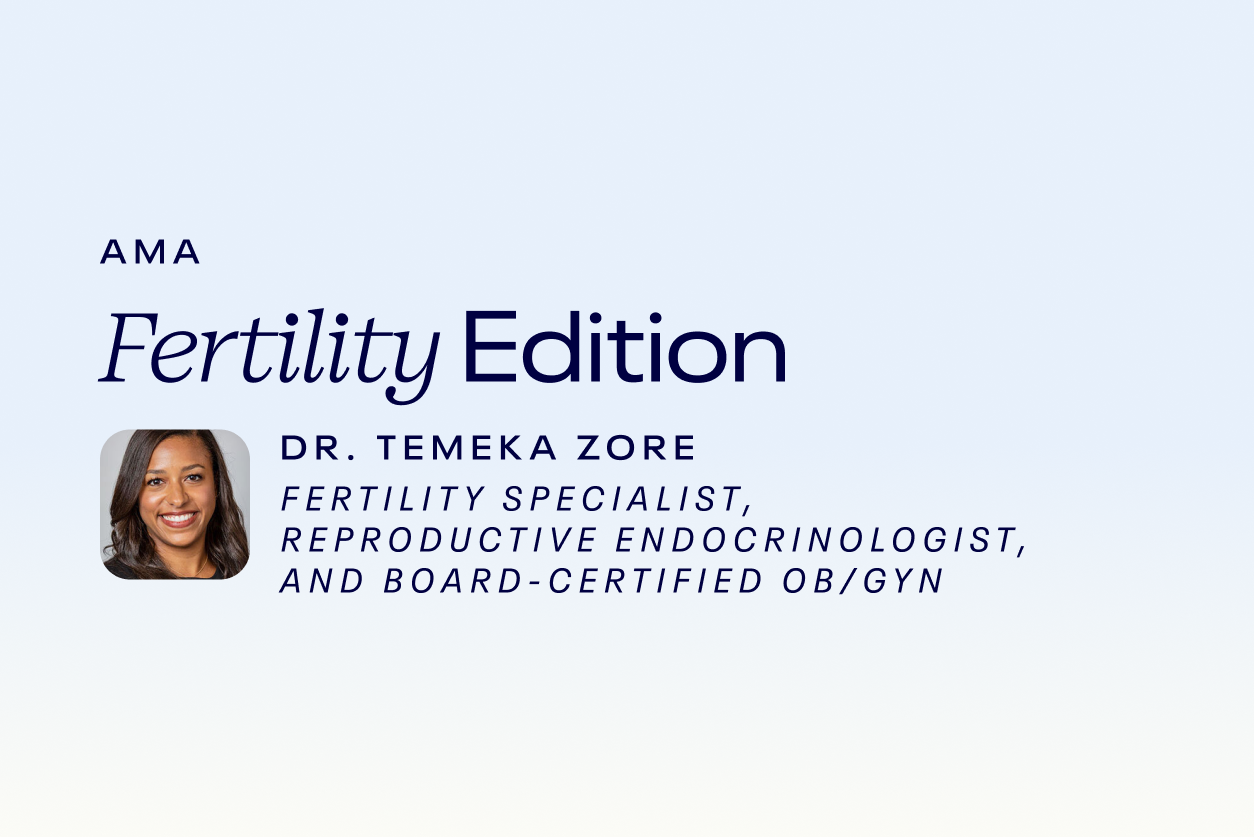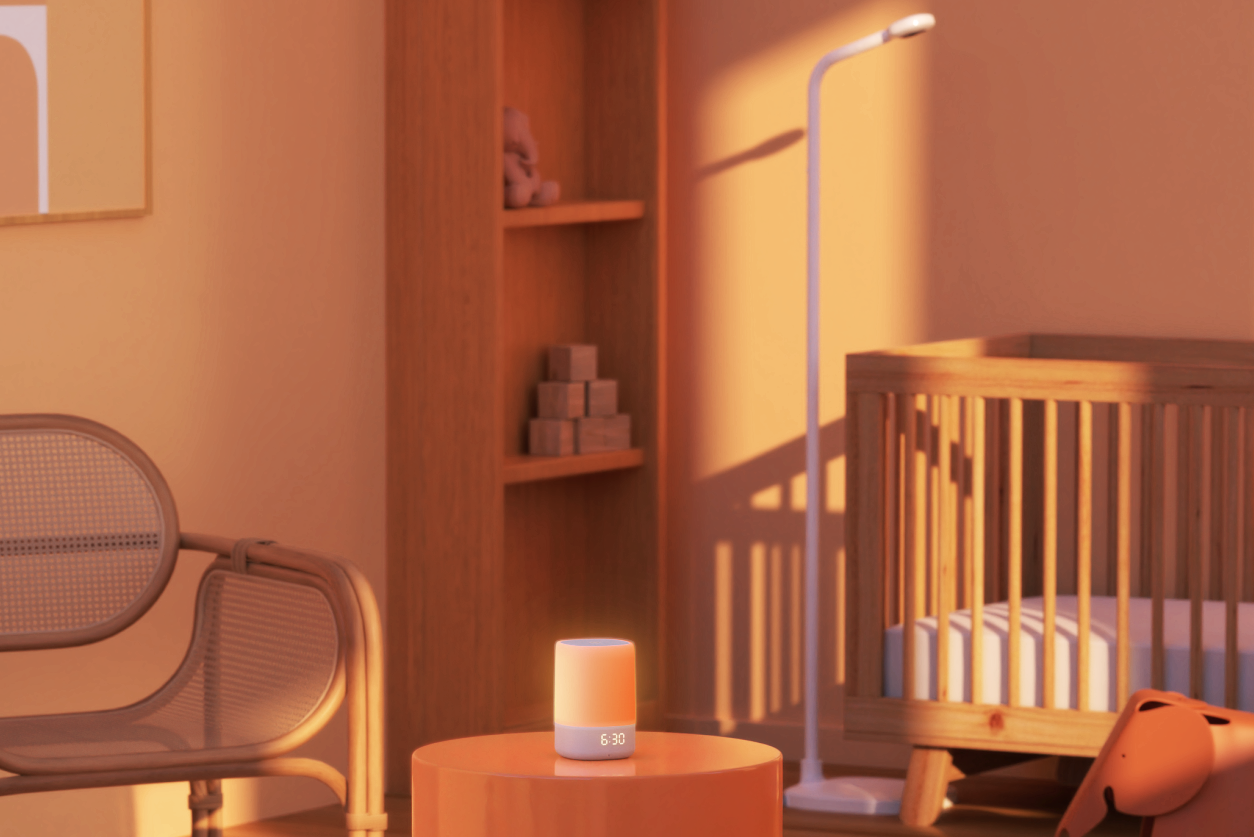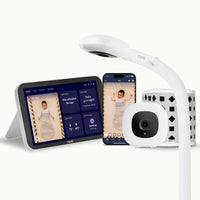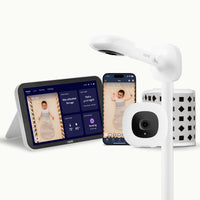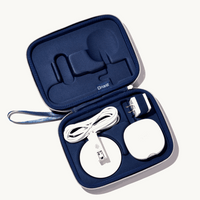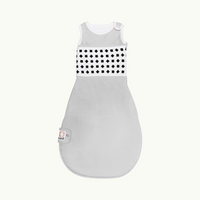Sometimes, the only thing more anxiety-inducing around raising a child is conceiving one. At Nanit, we know firsthand how stressful the process of fertility planning can be. We’re a team of mothers, ourselves, and we’re all been through the ups and downs and joys and heartbreaks associated with trying to have a baby. That’s why we’re so grateful to have Dr. Temeka Zore, fertility specialist and board certified OB/GYN here to address our community’s most urgent questions around conceiving, IVF, PCOS and more, so that you’re armed with the information, resources and data to make informed decisions about your fertility journey.
Q. I’m 37 with an amazing 18 month old. I can’t decide whether or not I want another child, but I’m leaning more towards being one and done. I feel like I need more time to decide, but the boogeyman of “advanced maternal age” is constantly over my shoulder. How long can I wait before trying for my next, and final, child? Is waiting an extra year or two a bad idea?
It is always hard to say whether one or two years will make a difference for someone because we can't predict our fertility future. That said, in general 38 versus. 40 are different ages in terms of probabilities of conceiving per month and miscarriage rates. However, you also should not rush your decision. One option is to consider freezing eggs or embryos (if you have a partner) to keep your options open for the future. Another option is at least consult with a fertility doctor to do an ultrasound and blood work to have some data to base your decision around. But again, we cannot predict the future. Even if your numbers and US look "good" today, that doesn't mean that can't change in the future. I would recommend a consultation!
Q. I have two children, both conceived through IVF. I have six more embryos. I have type 1 von Willebrand disease and had small pieces of retained placenta after both deliveries of my children. Both times it was discovered after excessive bleeding around four to six weeks postpartum. I had hemorrhaging during both deliveries. Would it be too risky to have a third pregnancy? I want more children, but my doctor has concerns. I’m seeking more opinions via maternal fetal medicine doctors in Boston before conceiving.
I am so sorry for the complications from delivery. In general, yes, every delivery you have is going to put you at higher risk for bleeding given your history. I would definitely recommend consulting with MFMs to discuss your risk of subsequent hemorrhage. Also it's important to note that if you had retained placenta and ended up needing additional procedures (like a D&C) to remove the retained placenta, you may have slightly higher risks of scar tissue formation in the uterus. This is something your fertility doctor would evaluate prior to doing a third transfer. Ultimately, your health and safety is most important!
Q. I just turned 42 and had my first child at 39. In trying to get pregnant now, I found out my ovary reserves are around 0.15. Is our only chance to get pregnant a surrogate or should we try IVF? We are desperate for one more child.
This is a very common question. First, ovarian reserve (or egg quantity- numbers) do NOT predict pregnancy. There are good studies showing no difference in pregnancy rates between women with high AMH levels or low AMH levels. But what does predict response to fertility treatment is age, and we know that over 40, egg numbers and quality start to go down. Options include attempting IVF with your own eggs for a few cycles to see how you stimulate vs. considering an egg donor. You likely do not need a surrogate (ie gestational carrier) because it sounds like you were able to give birth before. I would definitely recommend discussing your options/chances of success with your fertility doctor.
Q. I have PCOS and I’ve been told I do not ovulate on my own. I have two children thanks to IVF (my husband has some minor mobility issues but we’re told that it shouldn’t matter if I ovulated enough on my own!) Is it common for women with an anovulation to begin ovulating regularly after having a child? I never tried having our second on our own. We went from weaning off my daughter at one year and then going into an egg retrieval cycle. I would love to try for a third on our own but I just don’t know how I can release follicles without help of fertility drugs.
This depends on why someone is not ovulating. There are certain times when women with PCOS can start to ovulate again, but in other cases they may not. In general, the biggest clue is do you get regular periods? If your periods are not regular, it is unlikely you are ovulating regularly and thus it makes timing when to have sex to get pregnant more difficult.
Q. Our sweet baby girl was born 10 months ago via C-section. I stopped breastfeeding her at four months and had a Mirena IUD inserted three months postpartum. I still do not have periods, and if I do it is only spotting. I have tested negative on pregnancy tests but I’m just wondering when I can expect to start getting regular periods again?
Hi! Mirena IUDs in general allow most women to not get periods. So likely your body may not have been ready to ovulate and have its first period yet when you got the IUD put in (and that is ok!) And now with the IUD, the purpose of it is to thin the uterine lining and reduce the chance of pregnancy. Therefore you may not get a period at all. BUT, that does not mean you wont start to ovulate again. Most women with regular periods will still ovulate normally with an IUD in place, they just don't get the bleeding.
Join the Nanit Community to read the full Q&A.
Dr. Temeka Zore is a Fertility Specialist, Reproductive Endocrinologist, and Board-Certified OB/GYN. She is passionate about educating women about their reproductive health and fertility preservation and is an advocate for women’s reproductive healthcare. You can find Dr. Zore on Instagram or at Spring Fertility in San Francisco. We are excited to welcome Dr. Zore back to the Nanit Community!

